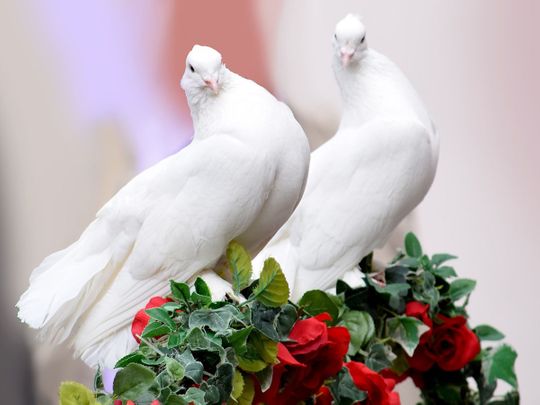
As the muezzin called out the adhan daily, thousands of snow-white doves would scatter from one courtyard outside Afghanistan’s famous Blue Mosque to another. However, since the coronavirus pandemic started, the lives of these birds have been greatly endangered.
The mosque, also called Mazar-i-Sharif, closed to curb the spread of COVID-19 and the doves no longer had anyone to feed them.
Since then, more than 1,000 doves have died of starvation, caretakers said on Tuesday, June 9.
Before the mosque complex shut amidst a nationwide lockdown, flocks of the white birds would gather at the popular tourist attraction, where visitors would feed them.
"Every day, about 30 doves die. We bury them outside the shrine," Qayum Ansari, head of cultural affairs at the mosque, was quoted as saying.
The famed Blue Mosque’s doves
It has been said that the doves have been raised and fed at the location at least since the 12th century. Some visitors even consider the birds scared.
"The birds were fed by visitors but since the lockdown, nobody has come," Ahmed Naweed, a caretaker at the mosque was quoted as saying.
Local officials said authorities were ready to feed the birds if mosque managers allow it.
A sign of peace, in the conflict-ridden country, Afghan officials are desperate to save the birds that once lined the bright blue tiles of the site.
"We will buy them bird food," said Munir Farhad, spokesman to the governor of Balkh province was quoted as saying.
Social media users also highlighted the issue online.
Tweep @NilimaGulrajani wrote: “Depressing but I can’t think of a better metaphor for our times.”
Whereas, Twitter user @drwazhmahakimi asked people to feed the birds: “White doves matter! According to an Ariana News report, about 1,000 #pigeons have died of starvation since the coronavirus disaster in Mazar-i-Sharif, Afghanistan. Is there a human to feed them?”
Over 22,000 people have been reportedly infected by the coronavirus in Afghanistan so far, though the real number is thought to be much higher.
The disease has taken the lives of more than 400 people in the country.
- With inputs from Agence France-Presse (AFP)








